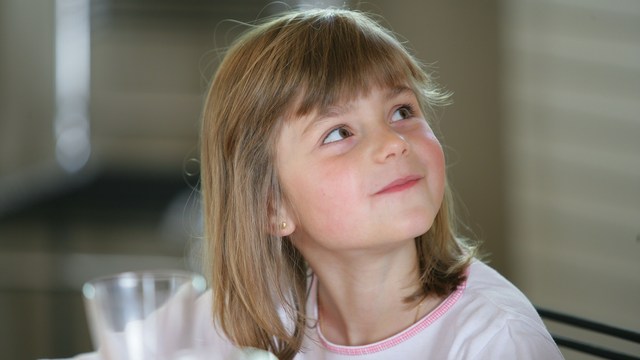 Auremar/PhotoSpin
Auremar/PhotoSpin
What is Heat Exhaustion and Heat Stroke?
Heat exhaustion is a serious condition that happens when the body loses too much fluid either in hot weather or a hot venue, and can no longer cool itself. When this happens, the body also loses electrolytes and minerals (e.g., sodium chloride, potassium, calcium and sodium bicarbonate) that the body’s muscles need to function. (1)
Heat stroke can happen if heat exhaustion is not treated. If the body’s temperature is not brought down, systems start to shut down. Heat stroke is a life-threatening medical emergency that requires immediate medical treatment. (1)
Heat Stroke Risk in Young Children
Infants, toddlers and young children are at increased risk of heat exhaustion and heat stroke because they are very active in the summer and do not understand why they need to slow down and drink plenty of fluids.
Children also sweat out a lot of their body’s water in a shorter amount of time because of their small bodies. Children are less able to lower their body heat by sweating so their bodies overheat much more easily than adult bodies. (6)
10 Tips to Prevent Heat Stroke in Young Children
The below tips to prevent heat stroke in young children are compiled from the Encyclopedia for Children’s Health, EverydayHealth.com, and the University of Chicago Medicine Comer Children's Hospital:
1) Make sure your child drinks plenty of fluids. Don’t wait until they tell you they’re thirsty. Stick with water and stay away from sugary drinks.
2) Use sports drinks or slightly salty water (1 tsp. of salt per quart of water) or lightly salted food to replace needed salt and minerals.
3) Young children should wear lightweight, light-colored and loose-fitting clothing.
4) To prevent sunburn, children should wear sunscreen of at least SPF 15 and a wide-brimmed hat even on cloudy days.
5) Outdoor activities should be scheduled for the mornings and evenings to avoid the time between 10 a.m. and 4 p.m. when the sun is the strongest.
6) As the days grow warmer, gradually increase your child’s physical activity to help your child become acclimatized to the weather changes.
7) Stay indoors as much as possible on really humid days. If your home is not air-conditioned, schedule time in a mall, library or other public air-conditioned building.
8) Do not leave your child in a car even with the windows down. Emergency room doctor Nathan Allan cautions, “There is no safe amount of time to leave children alone in the car.”
Assistant professor of emergency room medicine at New York University Langone Medical Center concurs stating, “Your car is a greenhouse and temperatures can get exceedingly hot in an exceedingly short period of time.” (7)
9) Serve cold and light meals since hot foods and heavy meals will add heat to your child's body.
10) Reinforce frequent breaks and body cool down time with your children.
Sources:
1. Heat disorders. Encyclopedia of Children’s Health. Web. May 18, 2012.
http://www.healthofchildren.com/G-H/Heat-Disorders.html
2. Heat stress and heat-related illness. BetterHealthChannel. Web. May 18, 2012.
http://www.betterhealth.vic.gov.au/bhcv2/bhcarticles.nsf/pages/Heat_stress_and_heat-related_illness
3. Extreme Heat: A Prevention Guide to Promote Your Personal Health and Safety. Centers for Disease Control and Prevention. Web. May 18, 2012.
http://www.bt.cdc.gov/disasters/extremeheat/heat_guide.asp
4. “Preventing Heat Stroke in Kids” Brichford, Connie. EverydayHealth.com. Web. May 18, 2012.
http://www.everydayhealth.com/kids-health/heat-stroke.aspx
5. Heat-Related Illnesses (Heat Cramps, Heat Exhaustion, and Heat Stroke). Comer Children’s Hospital The University of Chicago. Web. May 18, 2012.
http://www.uchicagokidshospital.org/online-library/content=P02822
6. Heatstroke. SafeKids.org. Web. Accessed: May 31, 2014.
http://www.safekids.org/heatstroke
7. Danger: Kids Left in Hot Cars. Web. Accessed: May 31, 2014.
http://www.webmd.com/parenting/features/hot-cars-and-child-death-prevention
Reviewed June 2, 2014
by Michele Blacksberg RN
Edited by Jody Smith






Add a CommentComments
There are no comments yet. Be the first one and get the conversation started!